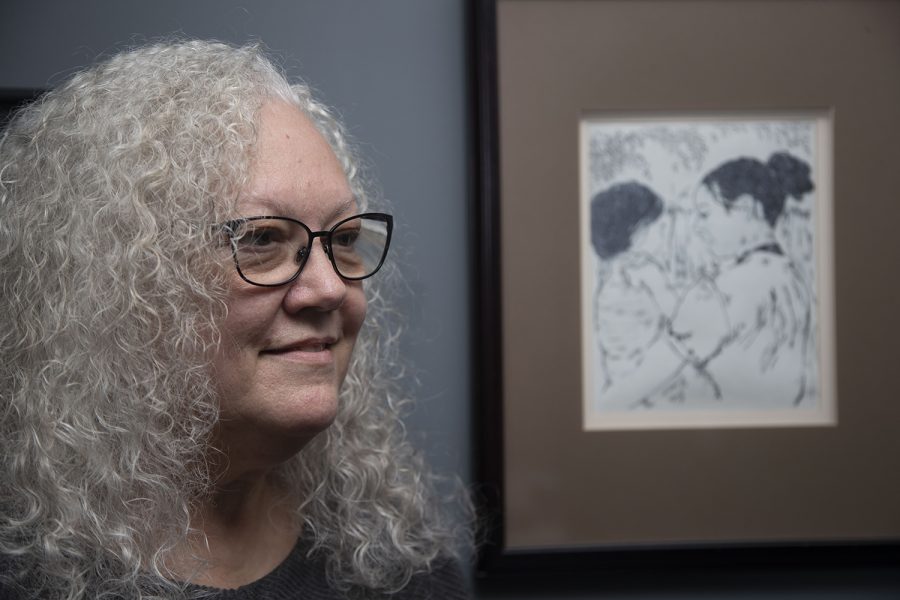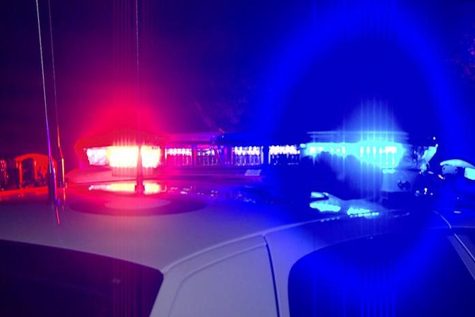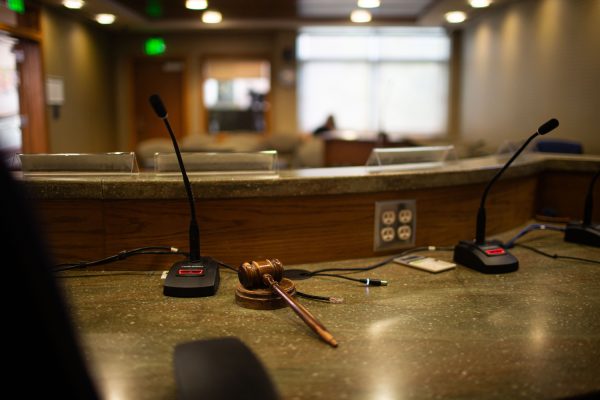Domestic violence homicides rise as federal funding for advocacy organizations drops
Domestic violence survivor advocacy groups are receiving cuts in federal funding as domestic violence deaths match their 2020 total in just 10 months.
Executive Director of Domestic Violence Intervention Program in Iowa City, Kristie Fortmann-Doser, poses for a portrait in her office at the Iowa City DVIP location on Thursday, Nov. 18, 2021. Fortmann-Doser explained that the thought process for DVIP’s funding is to diversify funds and not rely on state or federal funding. “It’s gonna be hard but we’re gonna do it.”
November 28, 2021
The number of domestic violence homicides in Iowa in 2021 has matched 2020’s year-long total in 10 months, coinciding with cuts in federal funding for advocacy programs.
There were 17 domestic violence homicides in all of 2020, a figure matched by October of this year. There were 10 domestic violence homicides in 2018 and 15 in 2019.
Sandi Tibbetts-Murphy, director of the Crime Victim Assistance Division at the Iowa Attorney General’s Office, said advocacy services are key in preventing domestic violence homicides.
“Research has shown that, when victims have access to advocacy, they are much less likely to end up in a situation where they’re murdered, and so that’s the significant issue here,” she said. “And of course, we are at a time where those grant funds for those programs have been dramatically decreasing over the last few years.”
Kristie Fortmann-Doser, executive director of the University of Iowa’s Domestic Violence Intervention Program, said the program will receive around 25 percent less federal funding this year, meaning it will be able to serve 600 fewer victims than in the previous year.
On top of reduced funding for advocacy groups, Tibbetts-Murphy said gun laws have also played a part in the increase in domestic-violence homicides.
“Guns are the number one weapon in domestic violence killings in the United States,” she said. “And in fact, just owning a firearm makes an abuser five times more likely to take a partner’s life. So they are in and of themselves in inherent danger.”
Tibbetts-Murphy said the decrease in funding comes from a reduced amount of money going into the federal Crime Victims Fund.
All fees, fines, and penalties from federal criminal prosecutions are typically deposited into the Crime Victims Fund. Tibbetts-Murphy said those funds can then be used for programs established by the 1984 Victims of Crime Act.
This includes national programs such as the National Network to End Domestic Violence and the Rape, Abuse, and Incest National Network, and local programs such as the Iowa Coalition Against Domestic Violence and the Domestic Violence Intervention Program.
“The problem is that, over the years, there have been fewer actual prosecutions,” Tibbetts-Murphy said. “There was more of a practice of diverting, and those funds from diversionary agreements [were] not being deposited into the Crime Victims Fund.”
Tibbetts-Murphy said the funding cuts will directly lead to less availability among advocacy groups to support survivors of domestic violence.
According to a letter from the Iowa Coalition Against Domestic Violence, the Iowa Coalition Against Sexual Assault, and the Iowa Coalition for Collective Change, federal funding for state grants through the Victims of Crime Act fell by 35 percent in fiscal 2021.
To mend the lack of funding, the Iowa Crime Victim Service Delivery Network asked Iowa Gov. Kim Reynolds to direct $20 million in funding from the American Rescue Plan. The organization’s letter cites the federal cuts and the hardships brought on by COVID-19 as reasons for needing more money.
Tibbetts-Murphy said, despite the decrease in funding, lawmakers are taking steps to provide adequate support to crime victims.
During summer 2021, Congress passed the Victims of Crime Act Fix, with the goal of taking money from diversionary agreements and putting it into the Crime Victims Fund.
Tibbetts-Murphy said, while this is a step in the right direction, it is still going to take time to build the funds back up.
“It’s going to take a good two or three years before that overall fund amount grows back up to a level that it was, say four or five or six years ago,” Tibbetts-Murphy said. “So we are going to continue to see reduced grant funds available over the next couple of years until that can catch up.”
Lindsay Pingel, director of community engagement for the Iowa Coalition Against Domestic Violence, said the Iowa Crime Victim Service Delivery Network — which the Iowa Coalition Against Domestic Violence is a part of — will take a hit because of funding cuts.
“When we are looking at funding cuts at the federal level, we are looking at loss of employment,” Pingel said. “We are looking at agencies that are closing their doors. We know that some of our programs who have offices in smaller communities have already closed their doors to keep staff.”
Fortmann-Doser said the rise in domestic violence homicides can be largely attributed to the COVID-19 pandemic.
“We have seen a 28 percent increase in crisis line calls and a 76 percent increase in our costs for sheltering,” Fortmann-Doser said. “… We also saw a significant increase in the number of people that we serve in fiscal 2021, just in Johnson County, an additional 300 people, which is about a 25 percent increase.”
Resources for victims of domestic violence
Domestic Violence National Hotline: (800) 799-7233
Domestic Violence Intervention Program: (800) 373-1043
Iowa Coalition Against Domestic Violence: (515) 244-8028













